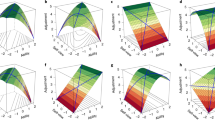
Overview
- Connects neurobiology, pathophysiological developments and secondary coping mechanisms
- Elaborates on overcoming ADHD-difficulties on the ground of understanding its functioning
- Provides readers with ADHD who have short attention span with digestible contents
Access this book
Tax calculation will be finalised at checkout
Other ways to access
About this book
This book explains, in engaging language, the emotional experience and possible behavioural patterns of ADHD on the bases of its neurobiological function, with a focus on the opportunities and obstacles faced by those with ADHD in professional education as well as in the course of a professional career.
A number of conceptualization concerning the central traits of ADHD such as negative hyperfocus, unusual learning curve, questions of selfesteem and emergency-benefits are unfolded for the first time in detail, combined with actionable explanations on how to deal successfully with these traits.
In consideration of readers with ADHD, the text is carefully written in a way that grabs your attention with: short sections, numerous illustrations, mini case histories and additional facts as extras.
The book is meant for persons with ADHD and their families, for employers and HR responsibles and last but not least for physicians, psychiatrists, psychologists, social workers and other professionals who want to understand in depth the functioning and emotional experiencing of ADHD and how to deal with it in practice.
Similar content being viewed by others
Keywords
Table of contents (10 chapters)
-
Front Matter
-
Back Matter
Authors and Affiliations
About the author
Heiner N. Lachenmeier, MD, is a Psychiatrist and Psychotherapist, working for more than 20 years with the main focus on adult ADHD in his private practice close to Zurich. He did research on functional understanding of ADHD and developed practice-oriented forms of treatment, international publications, teaching and leadership coaching. He is the founder and past chair of the FMPP, the umbrella organization of the two Swiss Psychiatric Associations (adult and children/adolescents), served in the parliament of the Swiss Medical Association FMH as well as in its Presidents Conference. In earlier years he built up the Swiss Training Institute for psychodynamic short-term therapy (GIK), was its first director of training and still remains a member of its faculty. In addition he advises the Institute for Integrative Gestalttherapy Würzburg (D) IGW and its Swiss subsidiary as a medical training manager. He is a member of the Swiss Association for ADHD, the ADD-Forum Berlin andthe World Federation of ADHD. Dr. Lachenmeier is a honorary member of the Argovian Psychiatric and Psychotherapeutic Association and of the Swiss self-help organization adhs20plus.
Bibliographic Information
Book Title: ADHD and Success at Work
Book Subtitle: How to turn supposed shortcomings into strengths
Authors: Heiner Lachenmeier
DOI: https://doi.org/10.1007/978-3-031-13437-1
Publisher: Springer Cham
eBook Packages: Medicine, Medicine (R0)
Copyright Information: The Editor(s) (if applicable) and The Author(s), under exclusive license to Springer Nature Switzerland AG 2023
Softcover ISBN: 978-3-031-13436-4Published: 21 April 2023
eBook ISBN: 978-3-031-13437-1Published: 20 April 2023
Edition Number: 1
Number of Pages: XVII, 168
Number of Illustrations: 26 illustrations in colour
Topics: Psychiatry, Clinical Psychology



